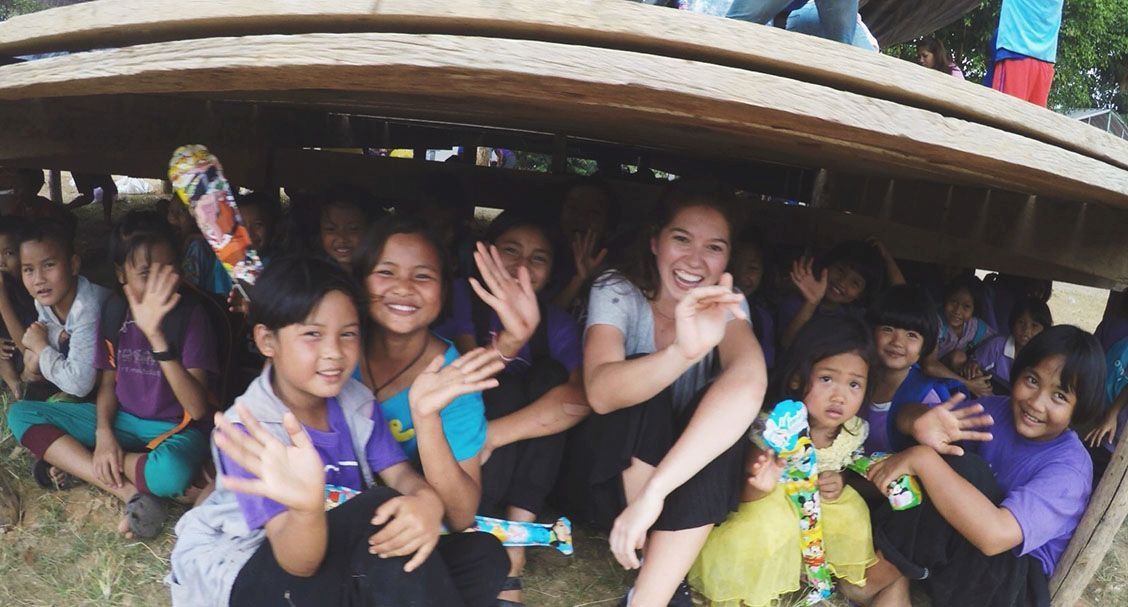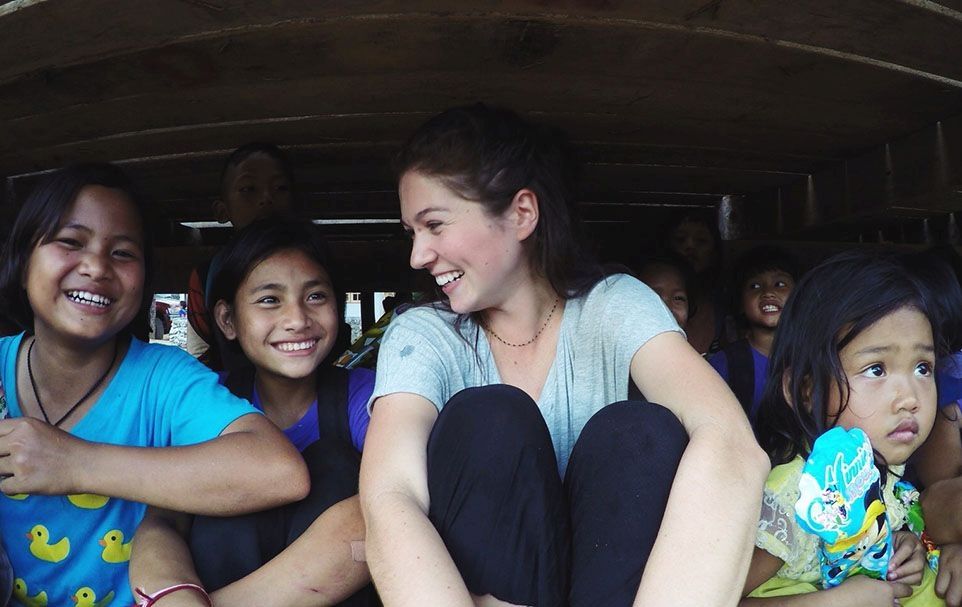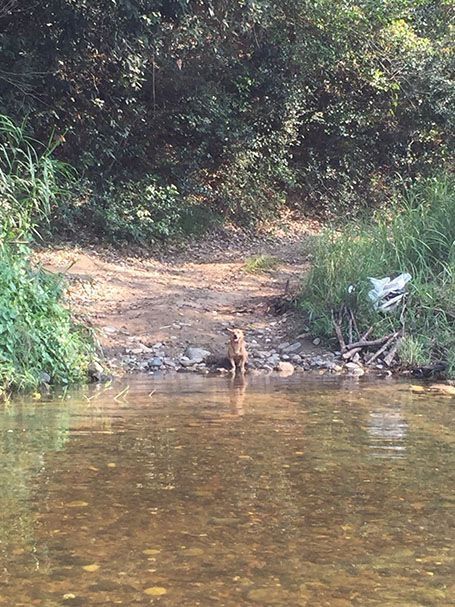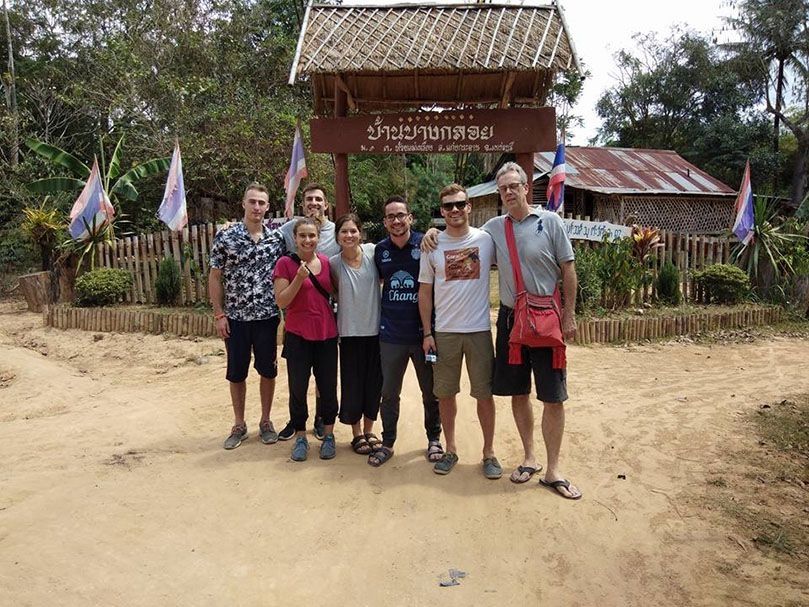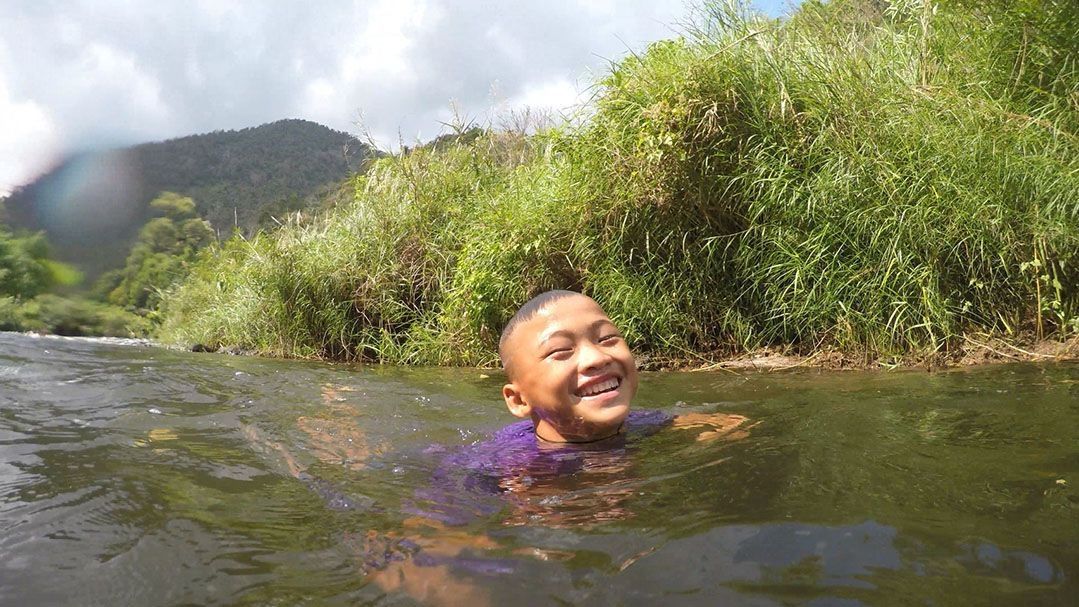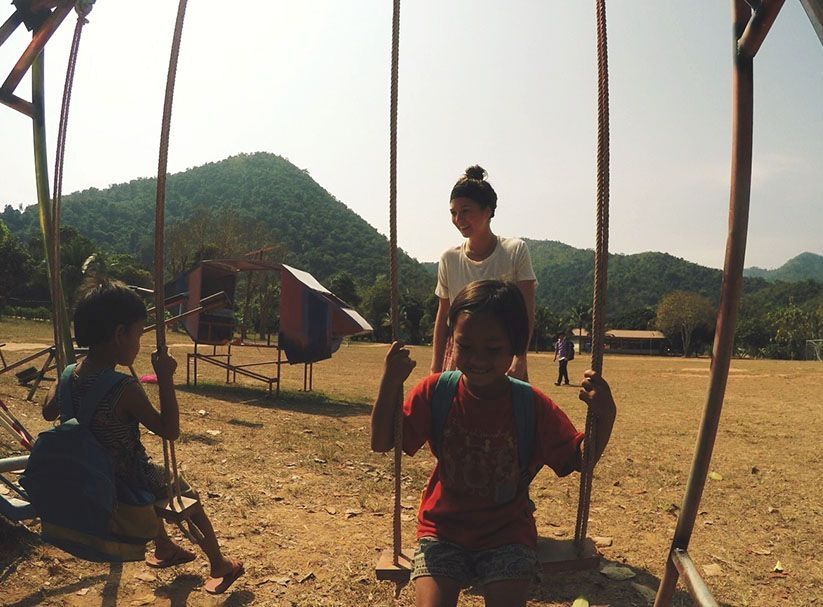Street Dogs & Village Children
I went to a village this weekend.
Brendon, one of the boys in the group I have done some of my Thailand travels with, extended an invitation to join him in visiting an isolated village near the Myanmar border. His words: “like National Geographic-type villages where people live in raised bamboo huts with no running water and cook from fireplaces.” We would be accompanied by a man Brendon has gotten to know during his time in Thailand, Lawn: a coworker and friend of Brendon’s who is also the foster-father of one of his students. Lawn has worked closely with the village for years, fostering boys and giving them an alternative life path away from that small, inauspicious community.
So I did that thing that I do in Thailand: I put my complete trust in a stranger.
I’m struggling because this was one of the most incredible experiences that I have had in Thailand, and yet I am stumped on what I should share. There isn’t a huge story to tell; nothing crazy happened. The things we did were pretty simple; the village, pretty primitive. However, I want to share my experience, to put words to the things I felt while being there, in this quiet, primitive village removed from the bustling cities where villagers speak a mix of Burmese and Thai.
To do so, I’m going to start with a story about a dog.
Now, it’s no secret that dogs run wild in Thailand; I pass at least 4 regular street dogs (I can picture them all, manning their respective blocks) on my way to school. Last month, one of these dogs had puppies and now I pass Mama Street Dog and any number of 0-6 clumsy, mismatched youngsters nearby on any given day. These mangy mutts are everywhere, and while the dog-lover in me mourns their innocence, my pedestrian side fears the unfamiliar ones, hardened by the streets.
Unlike the hardened city dogs, however, the village dogs are not as quick-tempered or territorial. Rather than fighting for food, they are more starved for human attention and affection. These dogs quickly grew loyal to the newcomers talking to them in baby-talk English and giving them love; they followed us and guarded our tents. At dinner, one medium-sized dog—who we nicknamed “Patches” due to a burn-marked healed into a patch on his back—slowly pulled his entire body up and onto the lap of our friend Brendon. He was less interested in the food on the table than on getting closer to the man giving him head scratches.
And Patches isn’t even the most extreme example.
The second morning there, the boys from the village took us to see the terraced gardens where the villagers grow a lot of their food. The quickest way to get there required crossing the river—a lazy stream no more than 2 feet deep in this stretch. We waded across easily, ascended the hillside, and came upon the bottom tier of the gardens where some vegetables grew. Nearby, children played—and not far from them sat a young, honey-colored pup, watching them and smiling in that way that only a dog can. He had the face of a big dog, but with short little Corgi-legs, and his teeth—exposed by his grin—were large and white.
He skipped over to greet us, excited by our approach, and grew notably more excited as we greeted him back with enthusiastic, “Hi Buddy!’s” and head scratches. He began to jump around, bouncing between the 10 of us like a loose pinball, not settling for too long on any one person before hopping to the next eager stranger ready to dote on him. Love can get you a long way with a dog—and I mean instant loyalty. He happily waddled up the hillside on his little legs, immediately accepted into our pack. He tagged along through the banana trees and up to the reservoir, no doubt breaking out further than his usual domain, all the while being addressed as if he were toddler: the center of our affection. As we ended our tour, he joined our descent, tail wagging, down to the riverbank.
You can probably intuit that this is where things are going to get sad.
The village boys slowly began the charge back across the river, each of us Westerners saying goodbye-forever to our temporary best friend before joining them. Brendon and I were the last to leave the riverbank. About five feet in, we looked back at our loyal pal, sitting patiently with his front paws in the water, watching us go—still smiling. He sat like that until every last one of us made it to the other side of the river, watching nothing and no one in particular. Of course we can all put thoughts in his head, but I truly wonder what he was thinking. I wonder if that was the best day of his life: to be taken into our pack and loved for a brief time that morning. I honestly hope it wasn’t his best day; I hope someone in that village loves him.
Patches (front) mid tail-wag and another pup.
We floated down the river with some boys from the village.
In ways more challenging to articulate, that dog is like the village kids. The kids are fed, if meagerly, and clothed; as Lawn, our village liaison described it to us: that’s pretty much it. Maslow would agree that their most basic needs are met, but argue that that isn’t enough for a purposeful existence. The children here are starved for attention and affection. Without it, men—arguably: boys—in the village turn to other vices and get hooked on alcohol at a young age; presumably to satisfy this desire for attention and affection, girls start having sex and, as follows sex, having babies around the age of 13. These kids grow up, but they aren’t necessarily raised; they get older, but life doesn’t get better. Knowing nothing other than the village they are raised in, there is no upward momentum—no opportunity for self-actualization. This is where Lawn’s role as a foster-father, giving boys from the village a chance to realize their potential, is vitally important on an individual level.
We got a chance to see the sort of “attention” the kids are used to receiving from outside groups, in the form of an aid group from Bangkok that was visiting the Saturday we arrived. As this village is protected by the government, few visitors—and even fewer Western visitors—are let in. However, this group was “making merit,” a Buddhist tradition (usually associated with giving to monks and/or temples, but sometimes including giving to others), and with this purpose, they were allowed entry.
Here is where things get tricky. It’s a nice concept: giving. The group came prepared to hand out toys—from blow up bats to Hot Wheels cars to Barbies—but no member of the 20-30 person crew seemed at all invested in making anything more than a material donation. After handing out items, the volunteers sat around with each other. Some volunteers relentlessly took photos of the kids, and once satisfied with the evidence of their selflessness that they had procured, retreated back to the circle of their friends. I don’t want to paint this like an “us vs. them” situation, with us being the do-gooders and them being the frauds, but the truth is that we were there to offer nothing more than our time and energy and enthusiasm—arguably the exact opposite of this opposing group.
At one point, Becky and I sat down together with a few girls; almost immediately, a crowd started to form around us. Some sat, and others stood, forming a big circle. We weren’t doing anything crazy to warrant this attention: we were talking to the kids, laughing with the kids, playing with the kids—also known as making human connections. They were curious about us, and, although shy at first, so full of joy and enthusiasm; they were fascinated by our light skin, by our arm hair (“What is?” one bewildered girl managed to ask me, mustering the best English of her peers), and our novel looks and behavior.
Taking cover from the giant raindrops.
These 2 girls hardly uttered a word (in any language), but they looked at me eagerly every time I stopped pushing their swings.
Just like all of the sweet little pups, these sweet little kiddos wanted to touch us; they held my hands and linked their arms with mine while others sat with their hands rested gently on my legs. We could hardly communicate due to the lack of any common language, but some things don’t need to be explicitly communicated. Just as the dogs could sense our honest benevolence, so too could the children.
Realistically, I won’t ever go back to that particular village. However, going there did reignite a desire I’ve had on and off for years, to work in an orphanage or village with kids whom I can offer my attention and affection to. When I came to Thailand, I had no idea what to expect. For all I knew, I was going to be in a village like this, with a chalkboard and a few desks and no other teaching supplies to speak of. I’m lucky to be in a school where I can project my lessons up on the board; I’m lucky to be in a town that’s bustling, with markets and restaurants and cafes with fast WiFi; I’m lucky to live in an apartment with electricity and (more often than not) hot water. However, there is something to be said about spending your time bettering the lives of individuals—especially mini individuals—who are so deprived of the attention that their response is immediate, almost palpable, happiness: individuals who value simple acts of kindness. To quote my astute boyfriend: “Time is our most valuable resource.” I aspire to spend my time making a child—or adult or lonely dog—smile. My weekend away reminded me of this, but let me make one thing clear: I don’t have to go to a village to live out this mission.
Thank you, Brendon — for inviting us this weekend, connecting us with Lawn, and documenting on your GoPro. And thank you, Lawn — for this incredible opportunity.
Related Posts
Unexpected Things I Wish I Knew Before Moving to Thailand: The Ultimate Guide to Living in Thailand
I'm sure you've read enough big-picture descriptions of daily life as an American expat living in Thailand. Now, indulge in some of the quirks and seemingly small idiosyncrasies that define daily life here, based on my personal experience living right outside of Bangkok.

Teaching English Abroad: Thailand vs. Hungary Comparison
Meet Sarah- a CIEE Teach Abroad & TEFL Alum! 😊 Hi, I’m Sarah! I’m originally from New Jersey, but for the last 4 years I have been traveling all over... keep reading
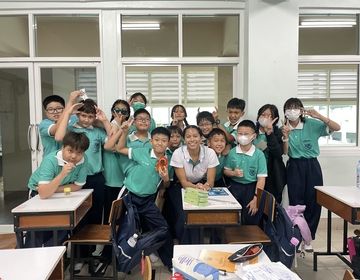
Rewriting My Top 10 Reasons: What a Year in Thailand Taught Me
Revisiting my First Blog Post If you scroll through my blog posts, you will find my first post: Why to Teach English in Thailand: My Top 10 Reasons. For anyone... keep reading
